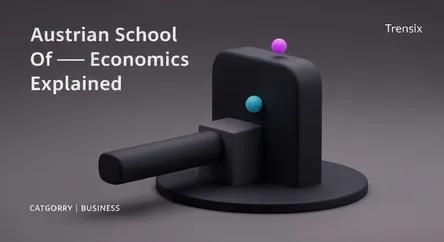Business
Austrian School of Economics Explained

Explore the Austrian School of Economics, a theory focused on individual choice, free markets, and critiques of central banking. Learn its core ideas.
What is it?
The Austrian School of Economics is a school of thought emphasizing individual choice, private property, and free markets. Originating in late-19th century Vienna with Carl Menger, its key figures include Ludwig von Mises and Friedrich Hayek. Unlike mainstream economics, it relies on logic and deduction—what Mises called "praxeology"—rather than complex mathematical models. Core ideas include the subjectivity of value and the crucial role of market prices as information signals that coordinate economic activity. Austrians are famously critical of government intervention, central banking, and centrally planned economies.
Why is it trending?
Interest in Austrian economics often surges during periods of financial uncertainty. Its strong critiques of central banking and fiat currency gain traction when inflation rises and people worry about the stability of their money. Debates over large-scale government spending and national debt also highlight its principles of fiscal restraint. The rise of cryptocurrencies, which operate outside of government control, has renewed interest in Austrian theories on sound money, making its century-old ideas feel remarkably relevant in the digital age and attracting a new generation of followers.
How does it affect people?
The Austrian School's principles influence major policy debates that shape everyday life. Its advocates push for deregulation, lower taxes, and free trade, arguing these policies foster prosperity and individual liberty. These ideas directly impact discussions about the role of central banks like the Federal Reserve, the causes of recessions, and the long-term effects of government spending. For individuals, this economic framework provides a lens to understand the real-world impact of monetary policy on their savings, the cost of living, and the overall health of the economy.